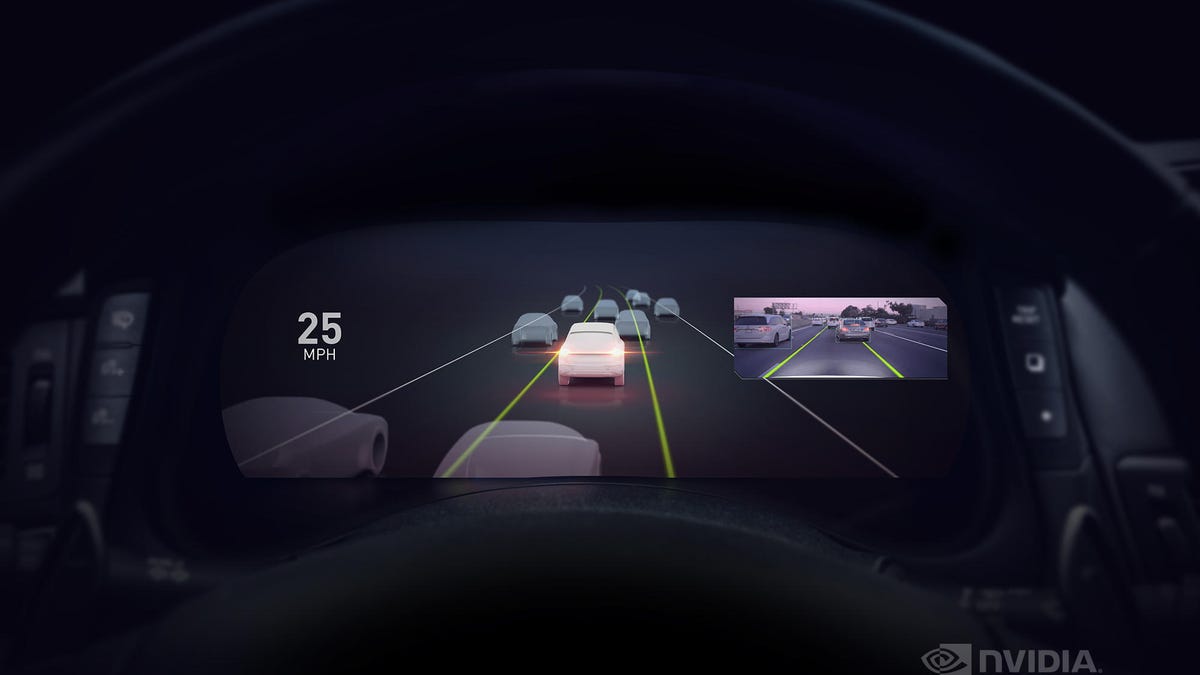Nvidia pulls the wraps off of its Drive AutoPilot system at CES 2019
The graphics card manufacturer is pushing even further into the world of self-driving car tech.

Nvidia's Drive AutoPilot system will be available commercially in 2020 to help vehicle manufacturers up their ADAS game.
Nvidia is a major player when it comes to developing hardware that will power the self-driving cars of the future. It's also got an eye planted firmly on the kind-of-self-driving cars of today, and it's with that in mind that it announced at CES on Monday its Drive AutoPilot system, which aims to bring advanced Level 2 autonomy to vehicles in the near future.
What does that all mean? Well, Nvidia is leveraging the computational power of its Xavier automotive-grade hardware to improve the way that cars see and understand the road around them. It's aiming for what it's calling Level 2+ autonomy.
A vehicle is considered Level 2 autonomous when it has two or more advanced driver assistance systems (ADAS) that can at times control the braking, steering or acceleration of the vehicle. These systems need to be monitored at all times by a human driver, and even then they can occasionally struggle with less-than-ideal road markings or conditions. Nvidia's Level 2+ would be a more competent version of that.
The big news with Drive AutoPilot is that Nvidia is offering it commercially to vehicle manufacturers, kind of like, say, Brembo does with brakes. A company wants to add these features to its vehicles, so it contracts with Nvidia, which then supplies it with an appropriate system, but that system isn't exclusive to said automaker. It's a lot cheaper for the carmaker, and probably a lot better than trying to develop these incredibly complex systems on their own.
In terms of actual functionality, Nvidia is making it sound like the system should be on par with Tesla's most recent version of Autopilot, which we've experienced and found to be impressive. Alongside Nvidia's announcement of Drive AutoPilot, automotive suppliers Continental and ZF announced that they have systems based on Nvidia's platform. Nvidia expects the system to be out and in the wild by 2020.
CES 2019: Every story so far: See all of CNET's coverage of the year's biggest tech show.
CES 2019 schedule: It's six days of jam-packed events. Here's what to expect.

